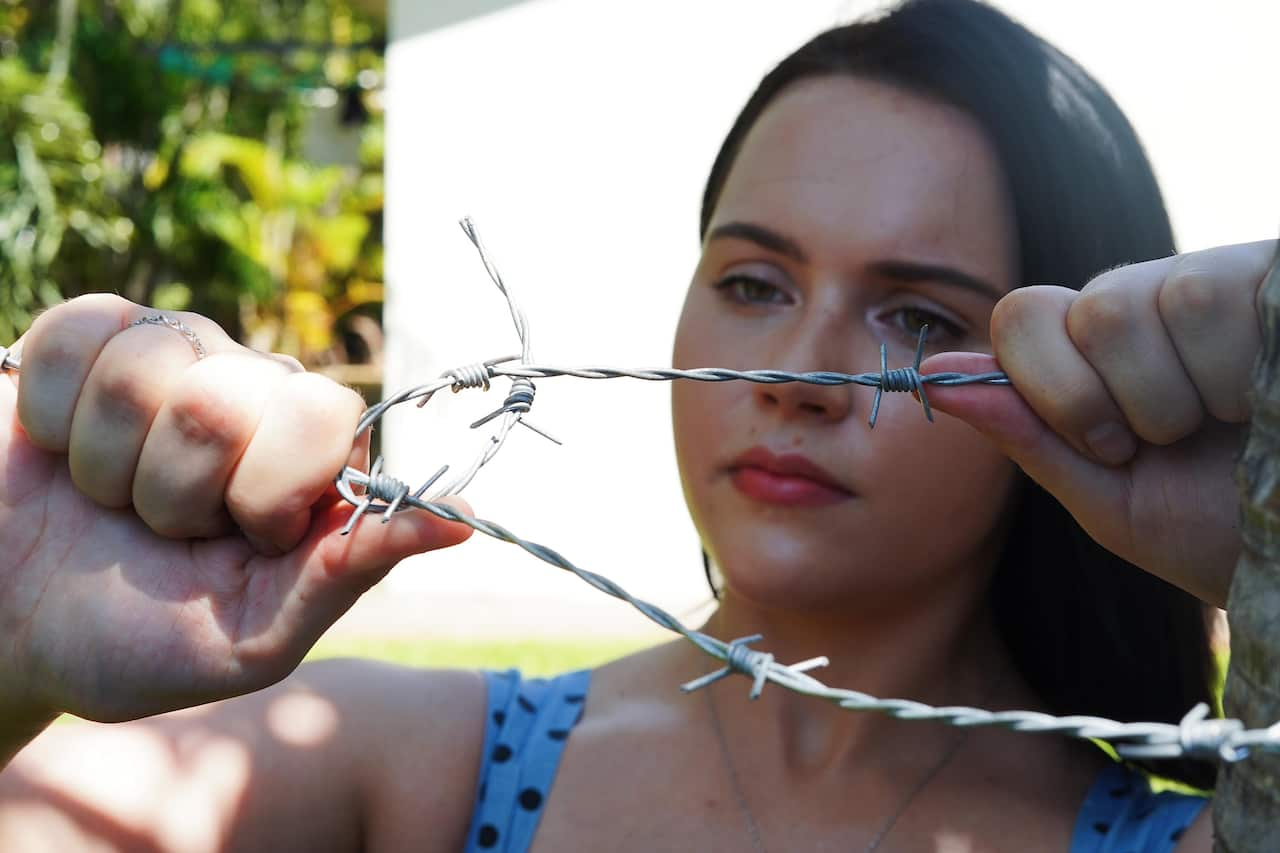As the economic impact of COVID-19 deepens, renters, who make up a third of Australian households, are finding it tougher to keep up payments.
While funding packages for tenants and landlords have been made available in some states, a plan for the Northern Territory is yet to be finalised.
Tia Smith, 21, was recently terminated from her job as a heavy machinery operator in Darwin.
While the government has announced a range of support measures for those out of work during the pandemic, Ms Smith is too young to receive the JobSeeker allowance, which is limited to those aged 22 and over. "We had gone from quite a high income for a household down to roughly $350 a fortnight," she told SBS News.
"We had gone from quite a high income for a household down to roughly $350 a fortnight," she told SBS News.

Ms Smith lives with her partner and another roommate and felt forced to leave their old home. Source: Aneeta Bhole
"So, when our rent was $590 a week, we just weren't going to be able to keep up with that."
Ms Smith lives with her partner and another roommate and said when the prospects of losing their jobs became a reality, they approached their landlord to discuss options.
"We reached out asking for all the financial hardship documents so we could provide them, and we asked if the rent could be reduced to $400 a week," she said. "Even at that point that would have been a massive stretch and we were going to be digging into our savings and that was rejected.
"Even at that point that would have been a massive stretch and we were going to be digging into our savings and that was rejected.

Ms Smith packed up and moved into a cheaper neighbourhood, one where she said she doesn’t feel safe. Source: Aneeta Bhole
"When you've got bills, insurance, food it's just not feasible."
The 21-year-old said while the household was not officially evicted, she felt "forced out" of the property she'd called home for the last six months.
"We went out of our way to be the ideal tenants, we always had our rent paid two weeks in advance. "It was disappointing and really upsetting that we provided all the forms we needed to and informed them weeks in advance, and we didn't get it, we didn't get any help, so that was hard."
"It was disappointing and really upsetting that we provided all the forms we needed to and informed them weeks in advance, and we didn't get it, we didn't get any help, so that was hard."

Just days after moving in, Ms Smith said her new home was broken into. Source: Aneeta Bhole
Ms Smith packed up and moved into a cheaper neighbourhood, one where she said she doesn't feel safe.
Just days after moving in, the home was broken into.
"They'd jumped the fence, gone around the back and seen that I had a pet lizard in a cage, and they'd urinated and defiled my pet's home and stolen him," she said.
"When that happens you just don't feel safe and you don't feel secure anymore, your privacy has been invaded and you shouldn't feel that way inside your house.
"We've now had to put up the barbed wire as a deterrent to anyone breaking into our home in the future."
Negotiation period to be extended
The NT Parliament will reconvene on Friday to pass key coronavirus legislation, including residential tenancy laws.
Northern Territory Attorney-General Natasha Fyles said the legislation will allow people in financial hardship caused by coronavirus to negotiate with landlords if they're having difficulties paying rent.
"Six months was what they talked about in national cabinet which most jurisdictions have gone for, but here in the territory we've gone for 120 days," she said.
"If someone is having difficulty in paying their rent, that negotiation period is currently set at 14 days. We hope to extend it out to 60 days.
"When the landlord gives notice to a tenant that currently again sits at 14 days and we hope to extend this out to 60 days.
"We believe that's reasonable. This is not for tenants to simply stop paying their rent this formalises the process and we hope gives tenants the confidence to reach out to their landlords." Sean Slattery collects coral for fish tanks and sends them by freight across Australia, but with planes grounded as a result of coronavirus, his work has come to a halt.
Sean Slattery collects coral for fish tanks and sends them by freight across Australia, but with planes grounded as a result of coronavirus, his work has come to a halt.

Sean Slattery is self employed and said the legislation is being handed down in parliament too late. Source: Aneeta Bhole
Despite the territory government's proposed changes, Mr Slattery, who has lived in his home for three years, said it's unclear what his rights are.
"I've been given a breach notice and I don't know where I stand at this moment, the real estate agents say I'm not being evicted, but why am I being given a breach notice?
"It's put me in a position where I just want to get out of here, but I have nowhere else to go." Managing Solicitor of the Tenants Advice Service Tamara Spence said the NT government had been too slow to act.
Managing Solicitor of the Tenants Advice Service Tamara Spence said the NT government had been too slow to act.

Mr Slattery collects coral for fish tanks and sends them by freight across Australia, but with planes grounded as a result of coronavirus. Source: Aneeta Bhole
"We understand that landlords are experiencing difficulties at this time. COVID-19 does not discriminate, it means landlords and tenants are having trouble paying their rent or mortgage," she told SBS News.
"So, we get that there have to be some concessions made for landlords, but the difficulty is that tenants are in trouble now."
Last month, Prime Minister Scott Morrison announced a six-month freeze on evictions from homes and businesses, with funding and details to be determined by states and territories. Victoria unveiled a $500 million package to assist landlords and tenants.
Victoria unveiled a $500 million package to assist landlords and tenants.

Mr Slattery has lived in his home for three years and said the relationship with his landlords is now tarnished. Source: Aneeta Bhole
In New South Wales, the package totals $440 million.
This week, Queensland passed laws protecting tenants from eviction if they can't pay their rent.
Meanwhile, Western Australia has allocated $25 million to a rent relief plan plus six months free rent for government tenants.
Tasmania, South Australia and the ACT have also announced a short-term moratorium on evictions.
People in Australia must stay at least 1.5 metres away from others and gatherings are limited to two people unless you are with your family or household.
If you believe you may have contracted the virus, call your doctor (don’t visit) or contact the national Coronavirus Health Information Hotline on 1800 020 080.
If you are struggling to breathe or experiencing a medical emergency, call 000. SBS is committed to informing Australia’s diverse communities about the latest COVID-19 developments.
News and information is available in 63 languages at sbs.com.au/coronavirus.











